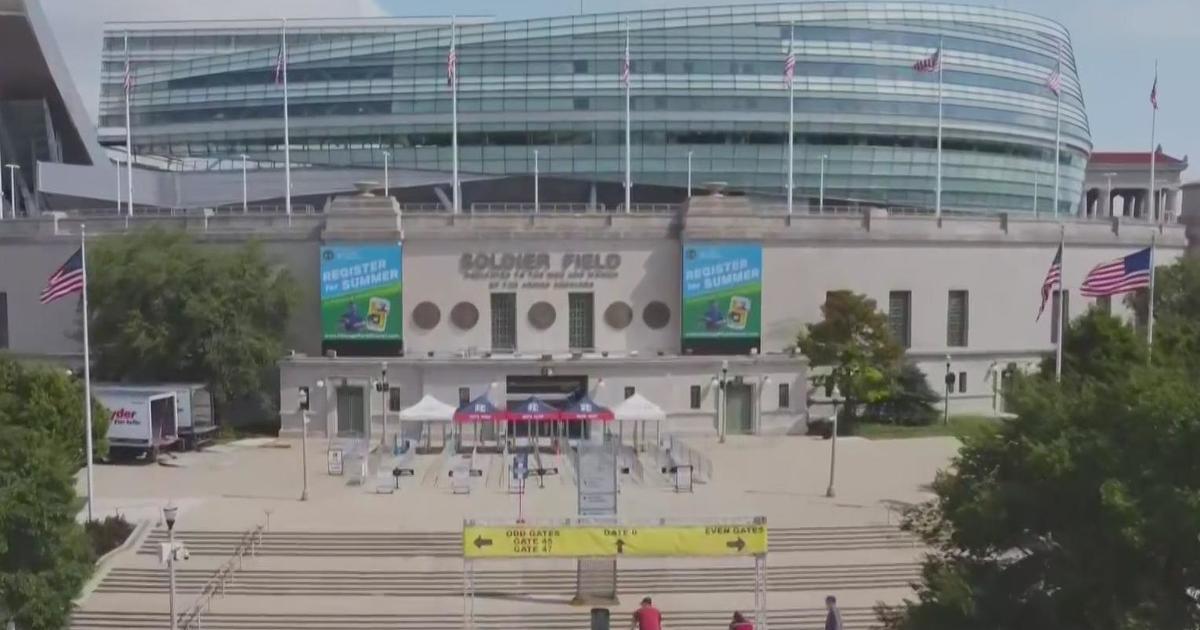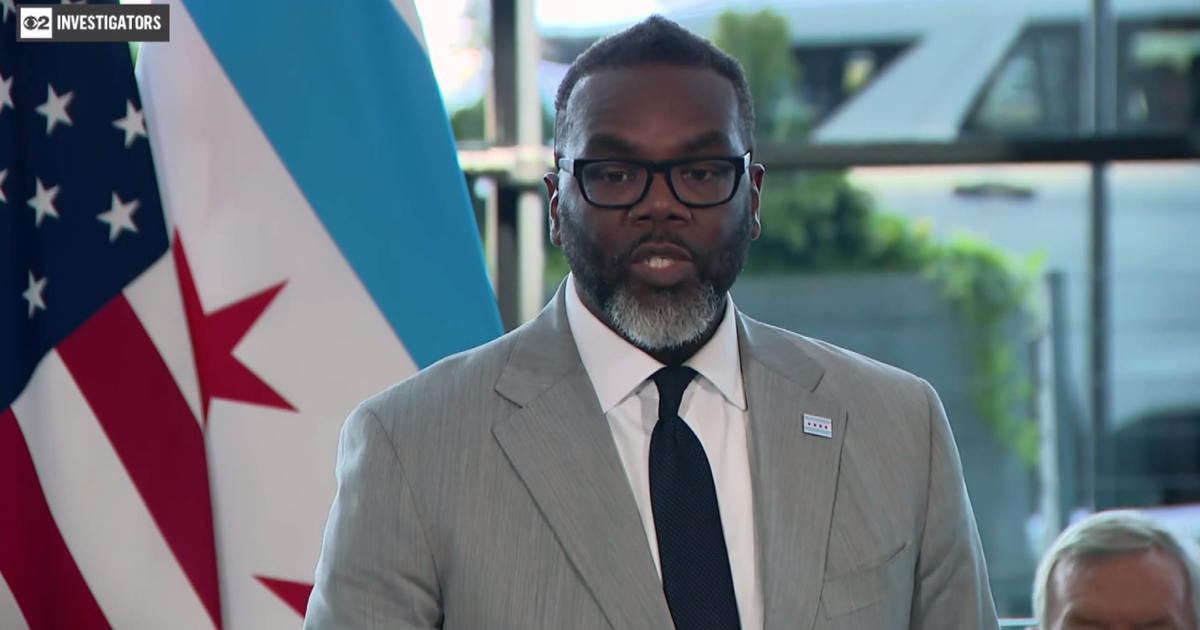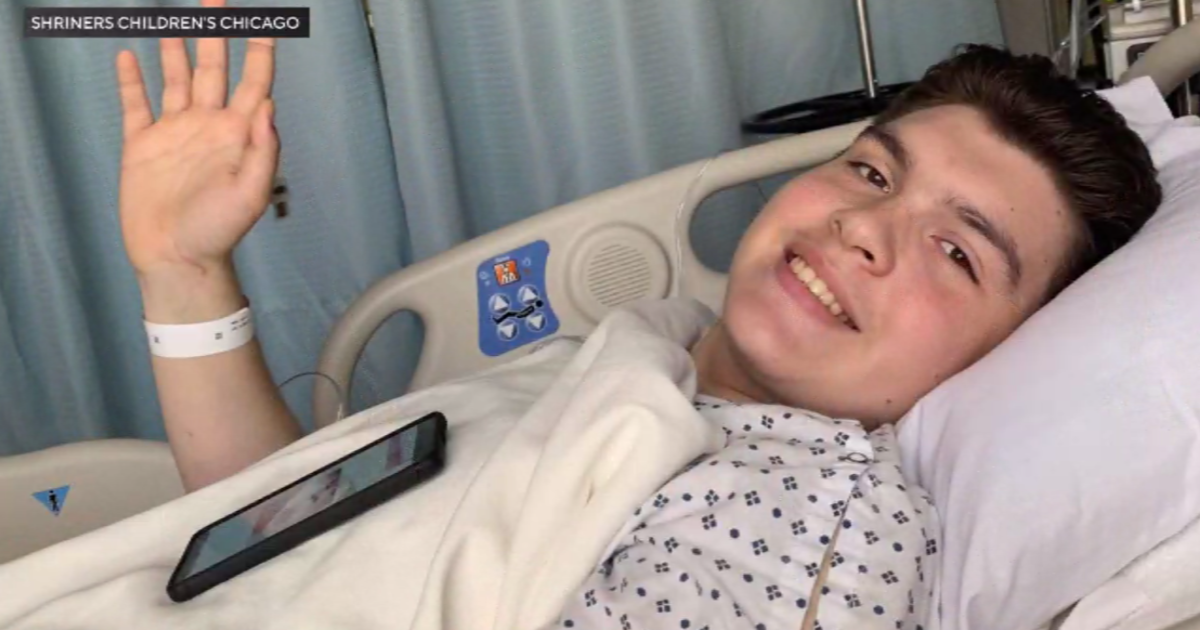Lightfoot Unveils $16.7 Billion Spending Plan For 2022, Using Federal Funds And Modest Property Tax Hike To Balance Budget
by Todd Feurer and Meredith Barack
CHICAGO (CBS) -- Mayor Lori Lightfoot on Monday proposed a $16.7 billion spending plan for 2022 that relies on federal stimulus funds, various "savings and efficiencies," and a modest property tax hike to help erase a $733 million budget shortfall.
It's the second year in a row the mayor is asking aldermen to back a property tax hike in Chicago, although it's a smaller one than the $94 million property tax increase the City Council approved for 2021.
The proposed $76.5 million increase in the city's property tax levy for 2022 includes a $22.9 million automatic hike tied to the consumer price index, which aldermen authorized last year; another $25 million to help fund the mayor's $3.7 billion capital plan for next year; and $28.6 million in tax revenue to be collected from new property.
Lightfoot also plans to use $385 million of the $1.9 billion in federal stimulus funds given to the city to help plug the city's 2022 budget hole, as well as $782 million towards' the city's 2021 budget shortfall, and $152 million to replace lost revenue in 2023.
The mayor also is declaring a $271.6 million surplus in tax increment financing, resulting in $67 million in additional revenue for the city's corporate fund, and another $150.2 million that will go to the Chicago Public Schools.
Lightfoot plans to plug the rest of the budget gap with $298.2 million in various "savings and efficiencies," including $67.8 million from lower healthcare costs for city employees negotiated in labor union contracts, and $230 million in "fiscal management recovery" initiatives.
During her budget address, Lightfoot repeatedly mentioned the financial struggles the city has faced during the pandemic, but sounded an optimistic note that "Our economy is definitely on the mend."
Still, Lightfoot said many Chicago residents, especially those in Black and Latino communities, still need assistance from city government.
"Our people are hurting, and in need of continued support and help," she said, noting that during the pandemic, 27% of Chicagoans lost health care, 33% of workers saw their work hours reduced, and 28% of residents suffered from food inequity.
"This most recent chapter of our history has been brutal, marked by too many stories of hardship, pain and even death," Lightfoot said.
Among new programs the mayor is proposing, the mayor said her spending plan sets aside $52 million in new funding for mental health programs, $35 million to assist victims of gender-based violence, $240 million in additional investments in affordable housing initiatives, and $71 million in targeted financial and legal assistance for underserved residents such as undocumented immigrants.
Lightfoot said she's also backing a first-of-its-kind cash benefit plan for low-income families, which would provide direct monthly payments to thousands of the city's neediest families. The mayor called it the largest of its kind in the nation.
"To build a better city, we must do more to invest in our people, our families, our neighborhoods; foundational transformative investments," she said. "As you will see and hear, we need to take big, bold, audacious steps to the benefit of our residents of today, and to build bridges to the future."
In addition to the $385 million in federal stimulus funds being set aside to plug the city's budget hole, the mayor also is proposing to spend more than $550 million more from the American Rescue Plan on several social service programs.
That includes $120 million for various assistance programs for Chicago families, $103 million for health and wellness programs, $85 million for violence prevention initiatives, $9 million on environmental programs, $32 million on support for the homeless, $65 million for youth programming, $16 million for arts and culture, $30 million for community development initiatives, $10 million to support digital infrastructure, $71 million in small business support, and $20 million to support tourism.
The mayor's budget plan also includes new initiatives to help ease the burden of various parking tickets, traffic tickets, and other city compliance violations on low-income Chicagoans.
Lightfoot said people who can show they can't afford to pay off a mound of ticket debt will have the opportunity to pay off their most recent tickets, and have the rest of their debt forgiven. They also will be able to qualify for a program to have the cost of their tickets cut in half.
In addition, anyone in Chicago will be able to qualify for a "fix-it ticket" program for simple compliance violations like missing city vehicle stickers, giving them one last chance to buy the sticker they need and having their ticket forgiven.
In an apparent effort to boost support from aldermen, Lightfoot also announced a $5 million "microgrant fund," which would set aside $100,000 in each ward, to be administered by the local alderman to "address gaps that otherwise might not be seen or met."
"You know this, that a good alderman has the pulse of the ward, knows the pain points of the residents, and we want to further equip each of you with tools to help address your residents' needs," she said.
Even before the mayor's budget address, some critics were calling on her to adjust how the city's money is spent.
Several community members, leaders, and aldermen gathered inside City Hall ahead of Lightfoot's speech, asking her to address the urgent needs of communities hit hardest by the pandemic and generations of neglect.
They asked Lightfoot to set aside $900 million in federal stimulus funds to go to communities most in need, including:
- $277 million to the Department of Family and Support Services for childcare, youth employment, domestic violence services, and more;
- $142 million to the Department of Public Health to re-open mental health clinics and expand non-police mental health crisis response;
- $160 million to the Department of Housing to preserve and expand affordable housing and tenant protections;
- And $70M for violence interruption programming that provides a non-police response to support other preventative measures like housing, mental health care, and employment.4
They also said they want the budget to look to progressive revenue sources, rather than a property tax hike, and cost saving options that don't rely on poor and working-class Chicagoans to foot the bill.
Ald. Rossana Rodriguez Sanchez (33rd) referenced a report released in 1968 that would create peaceful communities and improve the well-being of residents. She believes those recommendations could still be followed today to improve the lives of many Chicagoans.
"We are going through a wave of violence in Chicago. We have a huge problem with lack of affordable housing, and so many unhoused people in our communities. We have a crisis of mental health, and we don't have the tools to deal with that. And the consequences of all of those problems are then are thrown at the police. So we have an opportunity to here now with this budget to align ourselves with those recommendations that have been there since '68," she said.
The City Council now will begin a series of budget hearings with various city departments over the next three weeks to comb over the mayor's spending plan.
A final vote on the mayor's budget plan is tentatively scheduled for late October.



